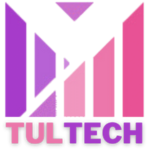Utilizing Gamification in Smart Waste Management: A Participatory Approach Integrating Green Schools, the Internet of Things (IoT), and Social Marketing
Keywords:
Waste Management, Social Marketing, Smart Systems, Internet of Things (IoT), Gamification, Green SchoolsAbstract
Urban and rural life heavily depends on the movement and collection of waste. A weak and inefficient waste collection system increases costs and poses significant risks to public health. Conventional waste collection methods are neither the most effective nor the most efficient. Enabling smart, sufficient, and self-sustaining Internet of Things (IoT) solutions is crucial for enhancing human welfare. In recent years, many countries have faced increasing pressure to meet legally binding targets related to recycling and waste management, with a growing focus on sustainability from policymakers and consumers alike. From this perspective, recycling plays a crucial role in reducing the amount of waste disposed of while simultaneously decreasing the demand for raw materials. The waste management process consists of six main stages: waste generation; handling, segregation, storage, and processing at the source; collection; sorting, processing, transformation, and conversion; transportation; and disposal. In this proposal, we first explore foundational studies on creating incentive systems to attract public participation. The next phase focuses on the implementation of participatory systems. The third step involves the development and construction of waste management applications, followed by the fourth step, which is dedicated to educating all stakeholders involved.
Downloads
Published
How to Cite
Issue
Section
License
Copyright (c) 2025 Quanta Research

This work is licensed under a Creative Commons Attribution 4.0 International License.






